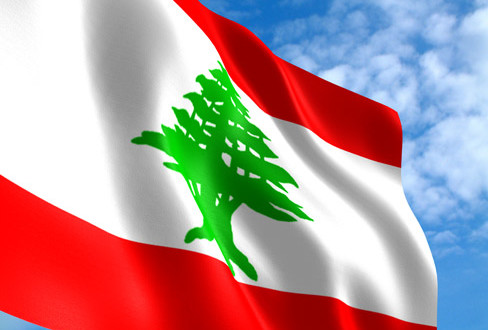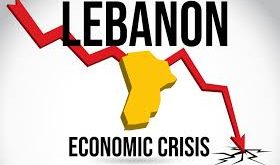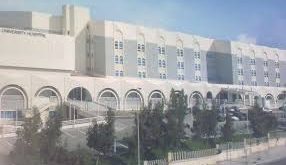The Greek government says the country has turned a corner, but that is not the experience of people on the ground
The Guardian
Helena smith
30 July 2017
“The worst is clearly behind us.” Panaghiota Mourtidou pondered the words with a gravity unusual for the jovial volunteer. Even now, several days after the Greek prime minister, Alexis Tsipras, saw fit to use the phrase, she still feels somewhat bewildered. “Politicians clearly have no idea of the reality on the ground,” she said. “If they did, they wouldn’t make such pronouncements because, really, it couldn’t be worse.”
It is four years since the Guardian met Mourtidou packing food boxes at the Solidarity Club which she and other concerned citizens were running out of the local branch of
Tsipras’s then radical Syriza party. At the time, the leftist was an ardent fan of the only political force she truly believed could pull Greece from the depths of financial collapse.
Tsipras’s promise to stamp out austerity, his raised fist and fiery rhetoric appealed to her sense of justice. In the summer of 2013 – almost 18 months before assuming power – he was “our big hope, the big promise of better days”.
But the politician’s volte-face, his enactment of some of the most gruelling budget cuts and tax rises since Greece’s great economic crisis began, has driven a wedge through any optimism she may have had.
Today, the Solidarity Club operates not out of the party’s local premises but a former grocery store up the road. Mourtidou now finds herself struggling with sentiments that veer between disappointment and rage.
“Tell me, how can anyone survive on a basic wage of €490 (£438) and still pay all the taxes they have passed?” she asks, stacking rice, pasta and pulses destined for the needy she encounters daily.
“There are 51 families who depend on us, and a lot of them feel desperate. OK, Greece has escaped bankruptcy, it has even dipped its toes in the markets again but, so what if its people have been left bankrupt in the process?”
With its brightly coloured furniture, open doors and do-good William James motto, the Solidarity Club is testimony to the endurance of Greeks under duress. Eight years on, the country’s debt drama, its brutal internal deflation to avert euro exit and austerity-driven downturn, have decimated districts like th
For the Solidarity Club stands not in one of Athens’ poorer suburbs – areas where citizens have long lived on, or beneath, the bread line – but in Koukaki, the neighbourhood favoured by those who want to be close to the Acropolis but can’t afford to reside on, or off, the boulevard that surrounds it.
It is in Koukaki that Chryssa Christodoulaki and her husband, Anestis, have lived for close to 50 years.
Until the outbreak of the crisis when she was compelled by crippling taxes to close her salon, the French-trained hairdresser had paid into a pension fund for almost 45 years – contributions that yielded a decent income before budget cuts whittled it away. “At first it was a fairly good pension at €1,750 a month,” she recalled.
“Then it was cut to €1,430 a month and now its €960 a month,” she sighed. “Anestis has suffered, too. All his life he worked in a private company only to see his own pension cut considerably.”
The language of progress undone does not come naturally. In the wake of military dictatorship – and 43 years of peaceful democratic rule – life had only got better. Now the couple are no longer sure if they belong to the middle class. Hopes of spending their latter years in Crete have been dashed; so, too, have plans of a work-free retirement.
“We talk about it often,” says the 68-year-old, who has private clients to make ends meet. “The middle class has certain comforts. We’ve become poorer and have adult children who can’t find work, who don’t want to go abroad and who rely on us. That’s the worst. An entire generation who have only known crisis, who may never be able to find work or have a family and future.”
Athens, like most urban centres, has been hardest hit by a crisis that has seen the country’s economic output contract by a devastating 26%. A study by the DiaNeosis thinktank found that 15% of the population, or 1,647,703 people, in 2015 earned below the extreme poverty threshold. In 2009 that number did not exceed 2.2%. The net wealth of Greek households fell by a precipitous 40% in the same period, according to the Bank of Greece. Unemployment, austerity’s most pernicious effect, hovers around 22%, by far the highest in the EU, despite a 5% drop in the last two years
Although the worst is over in terms of fiscal adjustment, few believe Greece will be able to escape a fourth bailout even if Athens regains market access when its current EU-IMF sponsored programme ends in August next year.
“It is very difficult to see the country being able to make a clean exit [from international stewardship] and raise the sort of money it needs to refinance its debt,” said Kyriakos Pierrakakis, director of research at DiaNeosis. “It will almost certainly need a new financial credit line, a bailout light, and that will come with new conditions.”
In such circumstances, faith in government claims that the country has turned the corner – based as much on last week’s market foray as completion of a landmark compliance review and disbursement of €8.5bn in bailout funds – is in short supply.
“Greeks can’t see any light at the end of any tunnel,” said Christodoulaki, shaking her head in disbelief. “They won’t believe anything at this point until they see it for real in front of their eyes.”
Across town in the communist party stronghold of Kaisariani, municipal authorities are already preparing for winter. In the giant 1960s concrete town hall, the social services department has lined up fundraising events, including concerts and theatre performances, to finance food donations that local stores and supermarkets can no longer afford to make. “Needs have grown exponentially,” said Marilena Christodoulou, her office wall adorned with the slogan “poverty is not a crime”.
“The crisis has gone on for so long that those who could once help are also suffering. We have 367 seriously deprived people on our books and the number is rising daily.”
But the pessimism spawned by pauperisation has also resulted in growing forms of solidarity. On the other side of the Acropolis in Kerameikos, the Greek Orthodox priest Father Ignatios oversees the Galini soup kitchen, an ever-expanding operation that houses the homeless, provides free dental care and study groups for children.
Those who invariably sign up for such services are the “invisible poor” – people who still have a roof over their heads but through dint of debt or joblessness cannot pay their bills. “A lot are very typically middle class who don’t want to come forward, who are ashamed,” he lamented. “It is getting worse. We need help, a lot more help.”
From the onset of the crisis, Ignatios’s crew of volunteers has cooked 350 meals a day, but with demand mounting has increasingly come to rely on donations from the country’s pre-eminent food rescue organisation, Boroume.
The brainchild of Xenia Papastavrou, the group has saved and donated over 14m portions of food since its initiation in 2011. Though phenomenally successful, Papastavrou said there was no time for volunteers to let down their guard. In the four years since our last interview, the crisis has morphed into a hydra-headed monster, affecting ordinary Greeks in ways both cruel and unforeseen.
“It has come in waves,” said the British-trained classicist who now heads the Giving for Greece initiative at the Bodossaki Foundation. “At every level of society a new wave presents new challenges that can only be addressed if the church, state and private sectors collaborate so that resources aren’t lost, help is given where it is needed most and all these solidarity groups have the greatest possible impact.”
For those affected hardest by Greece’s bankruptcy ordeal, the Syriza government has been praised for providing food vouchers and rental subsidies, free school meals and hospital care for some 2.5 million uninsured.
“For the poorest of the poor Syriza has been good,” said Mourtidou. “But it has not done what the vast majority hoped and that is very dangerous. Tsipras had a calming effect when he came along. There isn’t another Tsipras to promise us the world and now I fear the earth could be trembling under our feet. The next choice could be the far right.”
It is a common concern. Greeks have responded to loss with fortitude and resilience but a mood of uncertainty prevails. Amid the rage and disappointment many worry the power of loss could assume other more menacing forms.
“Uncertainty is the new normality,” psychology professor Fotini Tsalikoglou noted. “It could manifest itself in apathy, violence, more uncertainty, we just don’t know.”
 Lebanese Ministry of Information
Lebanese Ministry of Information



